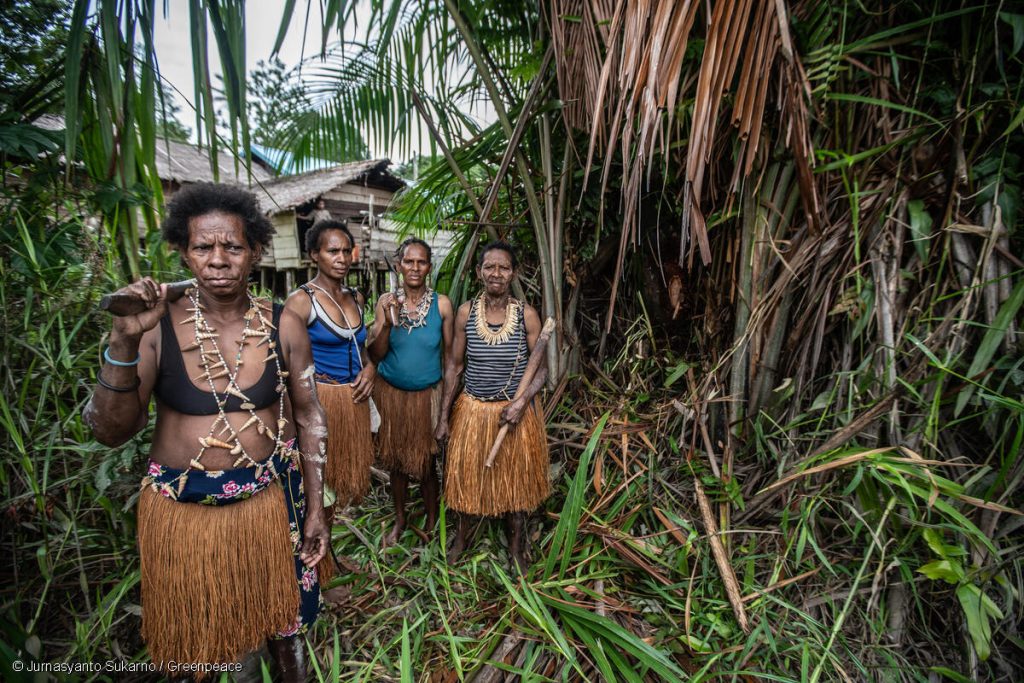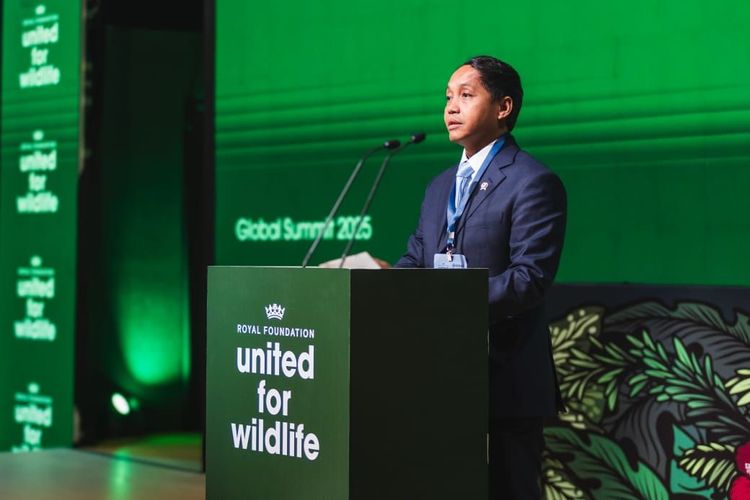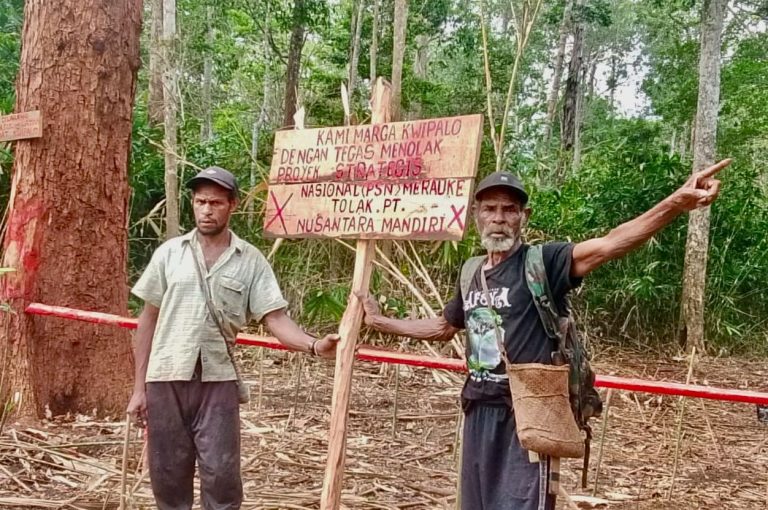
Jakarta – Indonesian civil society groups urged the government to halt ongoing Indigenous forest dispossession, warning that official recognition targets will ring hollow unless land grabbing linked to major development and extractive projects is stopped.
The statement, issued by JustCOP, a civil society coalition advocating rights-based and democratic climate governance on Sunday, November 9, responds to remarks by Minister of Forestry Raja Juli Antoni during the United for Wildlife Global Summit and High-Level Ministerial Roundtable in Rio de Janeiro on 4 November.

At the forum—attended by Prince William and global delegates—the Minister reaffirmed Indonesia’s commitment to recognising 1.4 million hectares of new Indigenous forests between 2025 and 2029, supported by a Special Task Force created in March 2025. He framed Indigenous forest recognition as central to Indonesia’s strategy to combat environmental crimes and strengthen community-based forest governance, citing SOIFO 2024 data indicating that recognition can reduce deforestation by 30–50 per cent.
Raja Juli Antoni also underscored the role of Indigenous Peoples and local communities as “true guardians of our forests,” and called for enhanced cross-border cooperation to tackle illegal wildlife trade and deforestation. United for Wildlife Executive Director Tom Clements welcomed Indonesia’s “bold commitment,” describing it as a model of leadership in protecting people and the planet.
Civil society organisations, however, argue that these commitments clash with realities on the ground. Torry Kuswardono, Executive Director of Yayasan PIKUL and Coordinator of the Secretariat of the People’s Alliance for Climate Justice (ARUKI), said ongoing land grabs undermine recognition targets. “It is meaningless to recognise 1.4 million hectares of adat forest while mega-projects seize customary lands far larger than that,” he said.
Groups point to food-estate schemes, energy and carbon plantations, and mining projects as key drivers of dispossession. In Merauke, South Papua, food-estate development under National Strategic Project status has displaced forests long inhabited by the Yei and Malind Anim peoples. In East Halmahera, North Maluku, residents of Maba Sangaji opposing mining expansion have faced criminalisation.
Additional structural barriers arise where Indigenous territories overlap with conservation zones, according to the Indigenous Territory Registration Agency (BRWA). Such overlaps deter local governments from issuing formal recognition. In Colol, East Manggarai, Nusa Tenggara Timur, parts of community-managed coffee lands fall within the Ruteng Nature Tourism Park, fuelling long-running conflicts, including the 2004 “Bloody Wednesday” incident that killed six farmers and the prosecution of community leader Mikael Ane.
Erasmus Cahyadi Terre, Deputy Secretary-General for Politics and Law at the Indigenous Peoples’ Alliance of the Archipelago (AMAN), said the government’s target remains small compared to the 33 million hectares of Indigenous territories registered in BRWA’s system. He urged regulatory reform and coordinated action across ministries to accelerate recognition and resolve entrenched land conflicts, including those linked to bioethanol-driven plantation expansion in Merauke.
Franky Samperante, Executive Director of Yayasan Pusaka Bentala Rakyat, added that Indigenous knowledge continues to be disregarded while communities face criminalisation near commercial plantation zones. He called on the government to cease using Indigenous Peoples as diplomatic tools in international negotiations and instead deliver full protection of their rights.
Civil society groups reiterated the urgency of passing the long-delayed Indigenous Peoples Bill (RUU Masyarakat Adat) to end conditional recognition systems and strengthen human rights protections. (nsh)
Banner photo: The Kwipalo clan, part of the Yei tribe in Merauke, South Papua, rejects the National Strategic Project (PSN) that is destroying their customary forest. (Source: PUSAKA)















